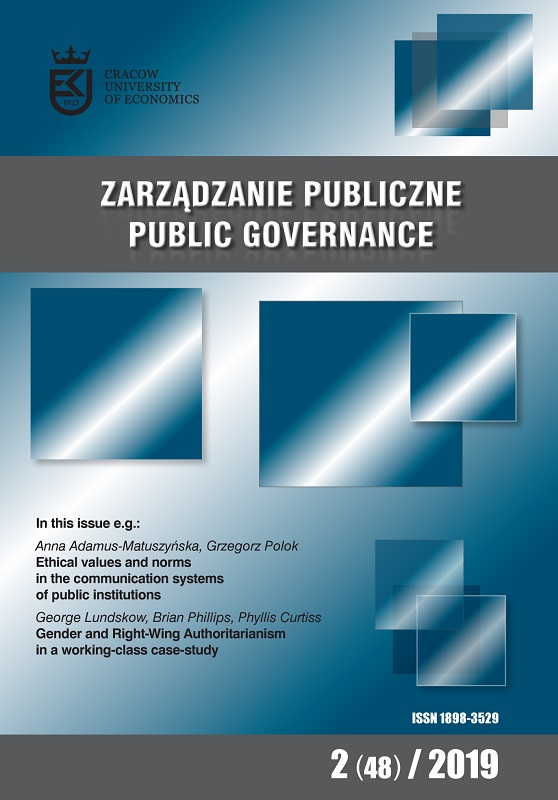The barriers to co-operation in the food safety system in Poland
The barriers to co-operation in the food safety system in Poland
Author(s): Dorota Jendza, Piotr J. WróbelSubject(s): Politics / Political Sciences, Social Sciences, Economy, National Economy, Sociology, Socio-Economic Research
Published by: Uniwersytet Ekonomiczny w Krakowie we współpracy z Wydawnictwem Naukowym Scholar
Keywords: inter-organisational ties; public management; food safety
Summary/Abstract: Objectives: The official food safety system in Poland is divided between a number of specialised inspection bodies.The effective implementation of the entire inspection and supervision process requires multi-direction co-operation.The aim of the study presented was the identification of the barriers to and boundaries of the inter-organisational cooperationbetween the inspection bodies involved in the official food safety process.Research Design & Methods: Qualitative research methods: analysis of organisational documentation, industry reports,post-audit reports and in-depth interviews with employees of five inspection bodies.Findings: The co-operation between the inspection bodies should be multi-threaded and multi-lateral. In fact,the mechanisms that encourage co-operation are relatively weak and there are numerous barriers between them. The lackof the inter-organisational co-operation is caused by various factors: cultural, social, political, legal, and organisationalnorms and values. The key source of the barriers is the fragmentary perception of the food safety supervision processby employees, which results from the lack of a systematic approach to this process. The employees of the inspectionbodies perceive the remaining inspections as external entities and not co-workers taking part in a common processaimed at common good.Implications/Recommendations: This article suggests some policy implications. The evolutionary solutions may includemeasures to eliminate the differences between inter-organisational co-operation postulated in legal regulations and realpractices. The revolutionary activities may consist of building a comprehensive system of official food safety whichwill lead to consistent supervision over the entire food chain, and not only over the individual stages thereof. Theconstruction of such a system may require changes in the number and the scope of tasks of the existing inspections.Contribution/Value Added: The inter-organisational co-operation problems as part of the official food safety processare not specific to only the system in Poland: similar difficulties are found in many countries. Therefore these researchfindings have potentially wide application.Article classification: research article
Journal: Zarządzanie Publiczne
- Issue Year: 2019
- Issue No: 48
- Page Range: 45-57
- Page Count: 13
- Language: English

